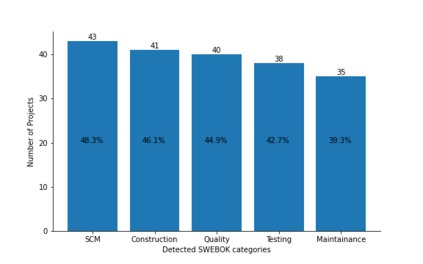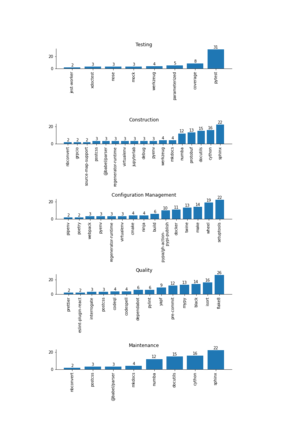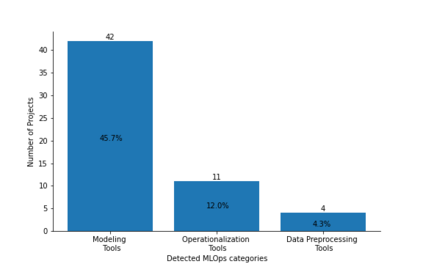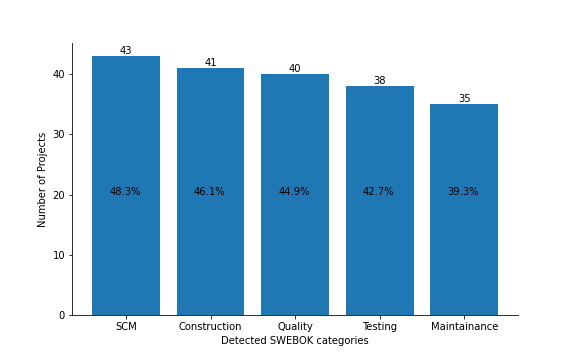The rising popularity of deep learning (DL) methods and techniques has invigorated interest in the topic of SE4DL, the application of software engineering (SE) practices on deep learning software. Despite the novel engineering challenges brought on by the data-driven and non-deterministic paradigm of DL software, little work has been invested into developing AI-targeted SE tools. On the other hand, tools tackling more general engineering issues in DL are actively used and referred to under the umbrella term of ``MLOps tools''. Furthermore, the available literature supports the utility of conventional SE tooling in DL software development. Building upon previous MSR research on tool usage in open-source software works, we identify conventional and MLOps tools adopted in popular applied DL projects that use Python as the main programming language. About 70% of the GitHub repositories mined contained at least one conventional SE tool. Software configuration management tools are the most adopted, while the opposite applies to maintenance tools. Substantially fewer MLOps tools were in use, with only 9 tools out of a sample of 80 used in at least one repository. The majority of them were open-source rather than proprietary. One of these tools, TensorBoard, was found to be adopted in about half of the repositories in our study. Consequently, the use of conventional SE tooling demonstrates its relevance to DL software. Further research is recommended on the adoption of MLOps tooling by open-source projects, focusing on the relevance of particular tool types, the development of required tools, as well as ways to promote the use of already available tools.
翻译:暂无翻译







